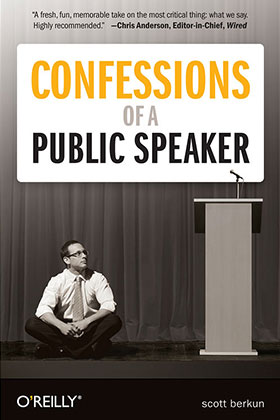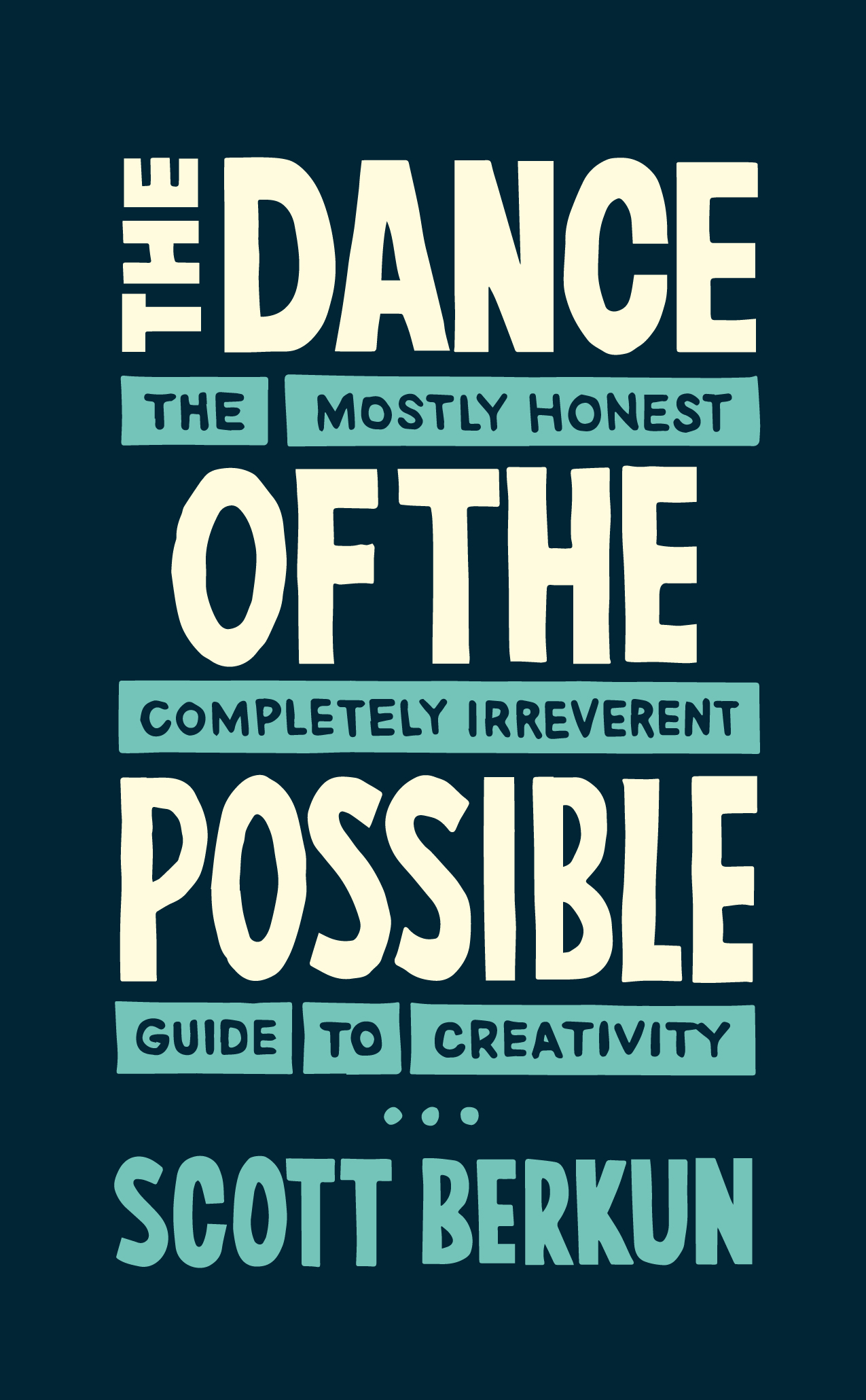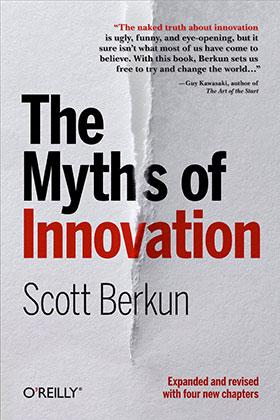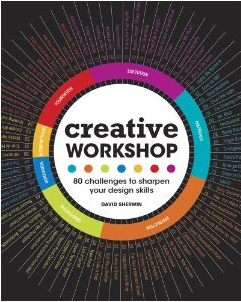An open letter to conference organizers
Dear Conference Organizer:
For centuries you and your peers have helped spread good ideas. For that, I like you. Events are important and organizing them is a thankless job. I’ve run my share of events, so I know. But there is an unspoken, often forgotten, problem I’m compelled to bring to your attention: most speakers do a bad job.
Some of this is not your fault. Good speakers are hard to find, especially ones who are available, affordable, and reputable. It’s challenging to fill an afternoon with great speakers, much less a 5 day, 3 track program. But it’s commonly forgotten in your trade, or by your sponsors, that speakers are the center of your event. They are the core of the agenda. They are what you advertise. And it’s what speakers promise to teach that gets people to pay to come. Yet once signed up to speak, they are often an afterthought, neglected behind the other critical tasks organizers have to manage.
There are simple and inexpensive ways to solve this problem.
- Don’t forget speakers are the stars. Most professional events sell tickets based on what attendees will learn and experience from the speakers. The people on stage are the primary talent. It’s true there are dozens of other demanding tasks in planning an event, but don’t make the mistake of losing the speakers in the shuffle. Make choosing and supporting them a top priority. Pay them, at least to cover their travel and expenses and reduce bias, as you are benefiting from the many hours they will put in.
- Provide speaker training. Unless you event is packed with pro level speakers, partner with a speaking coach to make it easy for your speakers to get the coaching they need. Even if you can’t pay for it, by making it easy for them to hire a coach signifies you care about their skills and want them to do their best. There are many great books on public speaking and books are cheap. Send them to your speakers, and far enough in advance to be useful. Presentation Zen, which focuses on slide design, and my own book, Confessions of a Public Speaker, which covers everything else, make excellent companions. Many major events and corporations hire speaker coaches, as speaking is a performance skill that takes practice and critique from experts to improve.
- Give them a rundown sheet or a checklist. There are many details speakers have to take care of, and it’s in your interested speakers do as many of them as possible. If you give a rundown sheet, listing where they need to be and when, contact phone numbers, addresses, and confirmation numbers, odds go up they’ll do fewer stupid things (which I admit, speakers sometimes do). And a great checklist for preparing to speak, helps remind them of the little things that make a big difference.
- Provide audience demographics. Make it easy for speakers to make the right assumptions about your audience. Give a sheet listing: age breakdown, job titles, gender breakdown, reasons for attending, and more. Most events have this information for marketing purposes, but rarely provide it to the speakers who need it the most. If nothing else providing this data helps reminds speakers it’s the audience that matters, not their egos.
- After the event, collect feedback and share helpful critiques. Speakers rarely get useful feedback on how they performed. Everyone is polite and tells them they were great, even when they bombed. Most events do surveys after each session, but it oddly never makes it to the speakers. This is broken. Even a simple stack ranking tells every speaker how they compared against their peers (e.g. “You were the 5th best speaker out of 10, based on audience surveys”) is a potent motivator for them to examine their skills, and to pay attention to what the “better” speakers did differently. Have a best session award, so everyone sees the feedback loop in action. UIE events even pays speakers a bonus that gets larger the better they scored. Shouldn’t pay be tied to performance for speakers too? Of course metrics and ratings can distort true value if not handled carefully, but nothing prevents an organizer from giving constructive feedback based on their own opinions of what they saw.
- Send example videos from previous years (show instead of tell). Talking about presenting and watching a good presenter present are different things. Give people a sense of what you, as an organizer, hope they achieve. It will also familiarize them with what attendees saw, and how they responded, in previous years.
- Let speakers use their own laptops, and slide designs. Speakers are performers and you want them as comfortable as possible (both Keynote and Powerpoint provide a special view that shows the next slide, time elapsed, and other performance-enhancing features that they may depend on). Moving slide decks between computers often breaks fonts and other formatting, problems organizers rarely notice, but can be devastating to even a well-prepared speaker. Give a basic template to speakers as an option if you must, or as a headstart for first-time speakers, but that’s the limit of the value of slide templates. The audience is sitting there all day and knows where they are. Have an interstitial slide with your branding or event info, but make that your task, not the speakers.
- Schedule a walkthrough / tech-check for each speaker. We know how fear works – unfamiliar rooms and spaces increase people’s nervousness. If you schedule a 15-minute slot early in the day, or the day before, for speakers to go to the room, try out their gear, and get comfortable, everyone wins. This reduces the risks of letting speakers use their own laptops, as you’ve tested their gear before they speak. It’s also insurance against any compatibility issues (projectors vs. laptops), as there is nothing worse than discovering these problems in front of a live crowd.
- Have a volunteer in the room during the session. Every room should have a volunteer who can assist the speaker for any last minute needs or problems. This includes assisting with tech problems, getting water, helping with Q&A at the end and more. For a free ticket, many people will be happy to play this role, so everyone wins.
- Provide confidence monitors in every room. One distracting habit among many speakers is they look at their slides, annoying the audience. Some of this is lack of practice, but part of the problem is room design. If you put a confidence monitor in the front of the room, facing the speaker, so they can see their own slides while looking at the audience, everyone wins. It’s not expensive, has clear benefits and increases every speaker’s ability to do a good job. Events like Ignite Seattle consistently do this, which helps explain why so many good talks have happened there.
- Have a speaker’s dinner or happy hour. Have an evening before, or early in, the event where speakers can meet each other, and the organizers, and make some social connections. You want the speakers to be happy and friendly at the event, as it’s the interactions they have with your customers between sessions that are likely to be the most memorable for them. The more social you are with speakers, the more social they will be with your attendees. And some speakers are dying to meet some of the other speakers and that’s made easier if you lead the way. This also allows your less experienced speakers to get to know your veterans, which can lead to informal coaching and support.
Please consider these simple things. You, your audience and your speakers all benefit at the same time. Perhaps you know better ways that the ones in this list – that’s fantastic and I’d love to hear about them, and I’d be happy to help promote their use to other organizers.
Signed,
– Scott Berkun, A speaker
Follow Up: See An open letter to speakers. Or my book, Confessions of a Public Speaker.









